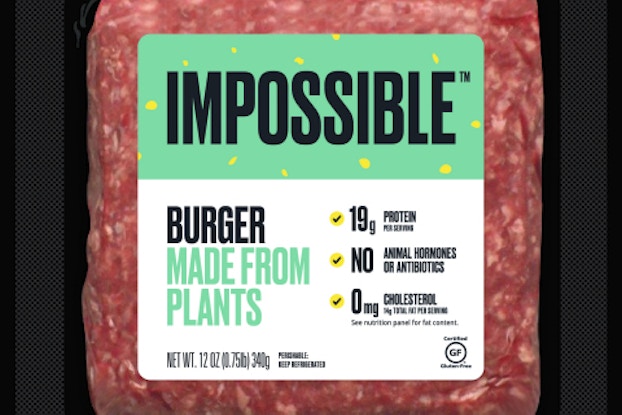
One might assume startup funding has shriveled along with an economy hammered by COVID-19. That would be wrong.
Investors are actually throwing money at startups whose business models cater to a nation on pause, like social-gaming platforms, at-home fitness tech firms and good-for-you-billed food brands — from faux-meat darling Impossible Foods to Olipop, a “healthy alternative to soda.”
These startups reflect the consumer goods gaining shopper dollars. And they mirror the sheltering-in-place, gym-deprived and outside-entertainment starved lifestyles of a pandemic-paused populace, according to market research firm CB Insights’ seminar, In The Shadow of COVID-19: Consumer Startup Investment & Sector Trends To Watch, attended by CO—.
With in-person celebrations on hold these days, seminal life events such as marriages and graduations are taking place inside of a game.
Jake Matthews, senior intelligence analyst, CB Insights
Stay engaged
These startups are succeeding amid the coronavirus crisis as the values and concerns of consumers change. Read on for ways your business can stay in contact with customers and serve their needs.
Gaming: ‘One of the most interesting areas to watch’
Against the backdrop of consumers sheltering in place, gaming startups built around virtual environments and e-sports are luring investor dollars.
Gaming is “one of the most interesting areas to watch,” Jake Matthews, senior intelligence analyst for CB Insights, said during the seminar.
In the wake of COVID-19, the gaming startup sector has seen “a ton of acceleration as gaming has become another venue for our social lives.” With in-person celebrations on hold these days, seminal life events such as marriages and graduations “are taking place inside of a game,” like Fortnite, noted Matthews.
These virtual worlds have opened up a surprising opportunity for fashion brands, whose sales have wilted amid pandemic-imposed store closures.
- Animal Crossing, a game launched in March, became a viral hit among homebound players who are spending even more time on their devices. Within the digital world of Animal Crossing, gamers can customize their avatar’s outfits with duds from Marc Jacobs, Burberry, Dior and Net-a-Porter, which are selling virtual versions of their high-end clothing that are adorned by gamers’ digital avatars. Brands are monetizing the trend, Matthews said. “It’s an important opportunity for brands moving forward.”
- Social gaming platform Roblox nabbed an estimated $400 million in disclosed funding, according to CB Insights. The platform, especially popular with children, allows users to design their own games and collaborate with others. Its Bloxy Awards game alone attracted four million users in March 2020, and Roblox's usage increased 40% from February to March of this year.
- Meanwhile, high school esports platform PlayVS has been reeling in funding dollars, while signing on big-name investors and partners, too. The esports market, which describes the world of competitive video gaming, was poised to reach an estimated $1.1 billion in 2020, up 16% from 2019, according to a Newzoo Insights’ pre-pandemic forecasts. And as live sports have all but ceased, “esports is thrust into the spotlight,” Matthews said. Now startups like PlayVS and GreenPark are seizing the moment “to expand the esports audience in a virtual way,” he said.

Food funding boom: Faux meat and dairy startups, and a soda touting gut-health, fetch millions
Food startups with a wellness edge are attracting more funding dollars, as the self-care movement gains momentum in a health-crisis-gripped nation.
Alternative meat players looking to scale are luring investors.
- Impossible Foods, the plant-based meat disruptor whose Impossible Burgers last year were so popular that it struggled to keep up with demand, is holding on to investor interest and then some: On March 16 the food tech company fetched $500 million in series F funding, the top deal by size in the consumer products sector, according to CB Insights. The May rollout of its Impossible Burger to 1,700 Kroger grocery stores marks a major expansion for the startup, Matthews said. Indeed, the move expands Impossible Foods’ retail footprint 18-fold, according to the brand, which sells in both retail and foodservice channels like Burger King.
- In the alternative meat space, lesser-known Memphis Meats has raised $211 million to bring its lab-grown meat to market. The startup, which grows meat from animal cells, boasts high-profile investors like Bill Gates and Richard Branson, as well as food giant Tyson Foods.
- The food funding boom afoot goes beyond alternative meat, as investors back dairy-free to gut-health-geared startups.
- Drawing $13 million in disclosed funding, Olipop’s prebiotic sodas aim to boost digestive health. The startup, which sells at retailers like Whole Foods and Fred Meyer, is plotting to expand its distribution.
- Perfect Day, the food tech company that uses fermentation to make animal-free dairy products like ice cream, secured $213 million in disclosed funding. The startup is taking a business-to-business path to mass distribution by selling its animal-free proteins to food producers, founder Ryan Pandya told CO— in September. [See CO—’s Perfect Day feature here.]

Homebound consumers nudge tech fitness boom
Into the first quarter as stay-at-home orders took hold, funding for later-stage, fitness-tech startups (think Peloton) surged, according to CB Insights. These include startups offering at-home fitness solutions and personalized coaching, such as:
- Cure.Fit, which bills itself as a holistic health platform that provides fitness classes, healthful meals and primary healthcare;
- Hinge Health, a program for chronic back and joint pain. The startup’s core product combines a wearable sensor with an app that delivers coaching for in-home, personalized therapy;
- And Mirror, an at-home fitness device that displays an instructor who guides users through a variety of workouts.
The startups are gaining traction with gyms closed across the nation and as digital health solutions — evidenced by the rapid adoption of telemedicine — gain mainstream appeal.
In health and fitness, “there’s a lot more investment activity,” Matthews said.
CO— aims to bring you inspiration from leading respected experts. However, before making any business decision, you should consult a professional who can advise you based on your individual situation.
Want to read more? Be sure to follow us on LinkedIn!
CO—is committed to helping you start, run and grow your small business. Learn more about the benefits of small business membership in the U.S. Chamber of Commerce, here.








